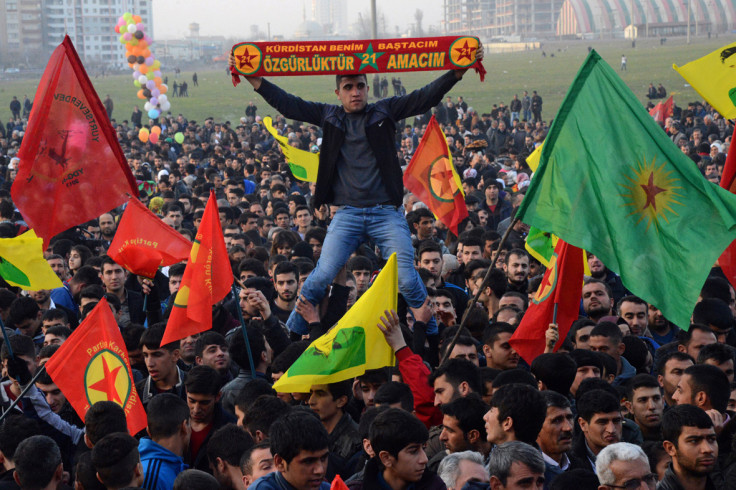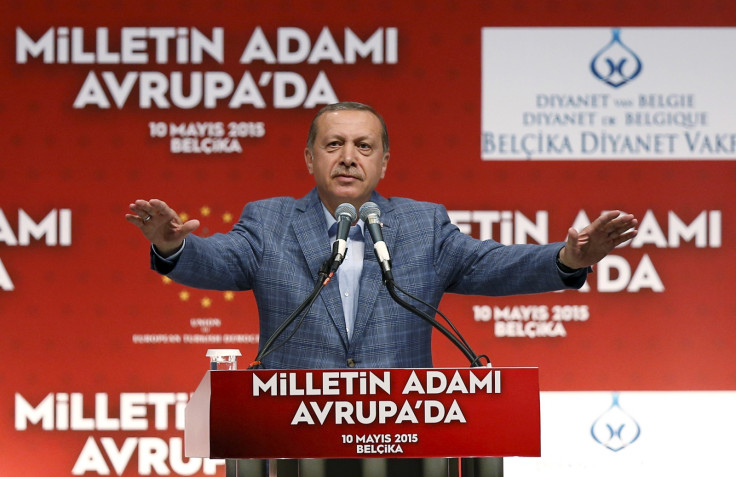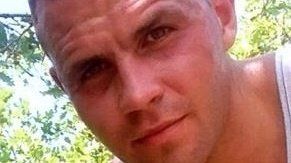Turkish elections: Kurdish HDP party provides crucial barrier to Erdogan dictatorship

On 7 June 2015, Turkey goes to the polls in what is widely seen as one of the most important general elections since the establishment of the Turkish state.
The authoritarian figure of Recep Tayyip Erdogan will be attempting to centralise even more legislative powers for himself as President of Turkey and the future direction of the Kurdish people's struggle for basic constitutional rights in Turkey will also be determined.
If the People's Democratic Party, HDP, a relatively new party rooted in the Kurdish movement, succeed in gaining more than 10% of the national vote, exceeding the threshold that was designed at the time of the Turkish generals coup in 1980, to keep the Kurds out of parliament, President Erdogan will fail to achieve his stated ambitions of absolute presidential power.
But if they fail to reach the 10% threshold Erdogan's AKP party stand to gain up to an extra 60 seats, ensuring the required majority to implement the President's plan to rewrite the Turkish constitution giving himself increased presidential powers.
As Turkish journalist and long time analyst of the Kurdish issue, Cengiz Candar, wrote recently: "The HDP, believed to be indirectly affiliated with the notorious PKK, has paradoxically become a hope for the future of democracy in Turkey. Hence it has become the "wild card" of the upcoming elections. Whoever visits Turkey nowadays will be confronted with the major question everybody asks each other: "What do you think? Will the HDP get 10% or not?"
The HDP has made common cause with the Turkish socialist movement, the LGBT community, women's and worker's movements and the Alevi and Sunni sects.
Ironically the HDP also seems to be ironically attracting many tactical voters from the CHP, the party of Kemal Ataturk, Turkey's founding father, as a way of reducing the powers of Erdogan and the AKP.
The HDP, believed to be indirectly affiliated with the notorious PKK, has paradoxically become a hope for the future of democracy in Turkey. Hence it has become the 'wild card' of the upcoming elections.
Turkey's most famous and successful female writer, Elif Safak, not known for her support of the Kurds, wrote in the Financial Times: "Once seen by Turkish nationalists as a backward subculture, the Kurds are now Turkey's leading progressive force."
How far the Kurds have come since Leyla Zana, a Kurdish MP, took the parliamentary oath after being elected to the Turkish Assembly by her constituency in Diyarbakir 23 years ago.
She strode defiantly up to the podium, with her hair band in the colours of the Kurdish freedom movement, red, yellow and green, and recited the short parliamentary oath in Turkish. However, the last sentence of the oath she proudly read in Kurdish:
"I take this oath for the brotherhood between the Turkish people and the Kurdish people."
For this, she was stripped of her parliamentary immunity and sentenced with her other parliamentary colleagues to 15 years in prison for treason and membership of the PKK.
It was still a crime to express your Kurdishness in Turkey in the 90s, despite years of struggle by the Kurds against the stated forced assimilation policies of the Turkish state.
In the 23 years since then, many pro-Kurdish parties have been created and then banned in a political war of attrition by the Kurds against the mindset of the Turkish political establishment, which was commonly known as Kemalism.

The PKK, the liberation movement of the Kurdish people, was established on 25 November 1978 in a small Kurdish village called Fis in the province of Diyarbakir. On 15 August 1984 they began a low-intensity defensive war against the repressive measures taken by the Turkish army against Kurdish civilians.
Although sacrificing so much and with a great deal of grief and pain along the way, with tens of thousands of Kurds remaining political prisoners in Turkey's jails including their leader Abdullah Ocalan, the Kurds are now poised to be the kingmakers in the upcoming Turkish elections.
Hopes are high for the HDP, with many Turkish liberals and socialists joining the party and reports of tens of thousands of Kurds switching allegiances from the AKP to the HDP in the Kurdish heartlands, and massive political rallies attracting hordes of people in Istanbul, Izmir and other Turkish cities.
But the HDP warns of serious provocations between now and election day on 7 June, as the AKP and Tayyip Erdogan plays an increasingly dirty electoral game.
The battlelines are set in what has already become a vicious political war with a reported 122 violent attacks on the offices of the HDP, culminating on 18 May in two coordinated bomb attacks on the HDP's offices of Mersin and Adana as the co chair of the party, Selahattin Demirtas travelled between the two cities, prompting speculation of a possible assassination attempt.
There has also been the first political killing of this election as a driver of the HDP's election van, Hamdullah Oge, was reportedly taken from the van and killed in an execution-style killing reminiscent of the extra judicial killings of Kurdish activists in the 1990s.
The 'peace process'
The 7 June elections are also set against the background of the much-vaunted 'Peace Process', a process that was born against the continued strength and victories of the Kurdish freedom movement.
Hakan Fidan, the then head of Turkish intelligence service, MIT, approached Abdullah Ocalan, the imprisoned leader of the Kurdish freedom movement, PKK and asked him to write down a comprehensive statement of the demands of the Kurdish movement in 2009 and so began the putative move towards peace.
Yet since 2009 the process has faltered, stumbled and died a thousand deaths as the Turkish state procrastinated, while carrying out a proxy war against the Kurdish movement in Rojava (northern Syria) and building high-tech military outposts in the north-west of the region often called Kurdistan, which lies in south-eastern Turkey. The Turkish establishment hopes to weaken Kurdish demands in any eventual settlement and, ultimately, intending to annihilate the Kurdish movement completely.

'I am frustrated at the way that the Kurds seem to be hidden from the west under an invisibility cloak. Daesh swept in to villages in Syria and Iraq and seemed unstoppable. We watched the events unfold and just couldn't believe the horror of it.'
Read Mark's interview with Vasiliki Scurfield, the mother of the first UK volunteer to die fighting Isis in Kobani.
Many do not believe that Erdogan or the AKP have any real desire for a peaceful settlement to the Kurdish question but the outcome of the Turkish elections will be of critical importance to how the Kurdish movement proceeds on 8 June after the elections.
If the HDP passes the electoral threshold of 10%, which all opinion polls now show they will, the likelihood of a peaceful political solution to the Kurdish question within the borders of Turkey looks increasingly likely, although certainly not guaranteed.
But if the AKP are seen to engage in further electoral fraud and vote-rigging to keep the HDP purposefully under the threshold and thereby deliver more presidential powers for Tayyip Erdogan, the Kurds are more likely to then concentrate on forging ahead with building a 'democratic autonomous Kurdistan' regardless of what the HDP do.
The Kurdish people are intent on bolstering the strong power base they already have with the HDP's sister party, the DBP (Democratic Regions Party) at local level, which already has a firm hold in several councils in the region sometimes called south-eastern Turkey. Another key aim is to forge greater links with the newly established Kurdish cantons in Rojava.
As ever, the Kurdish national movement, an increasingly powerful force in the Middle East, is ready for every eventuality both politically and militarily and will be watching and waiting for the next move of the Turkish state. Will Erdogan finally be prepared to sit down with Abdullah Ocalan and the PKK and solve Turkey's longest standing political problem in a peaceful political way? Or will he strive to continue a conflict that has claimed tens of thousands of lives and displaced millions of Kurds all over the world?
The stakes could hardly ever have been higher for the future of Turkey.
Vasiliki Scurfield's change.org petition against Isis can be found here. You can also support the campaign via a dedicated Facebook page.
Mark Campbell runs a blog about Turkey and Kurdistan, which you can find here. You can also find out more about Mark and his work on Twitter @Hevallo.
© Copyright IBTimes 2025. All rights reserved.





















